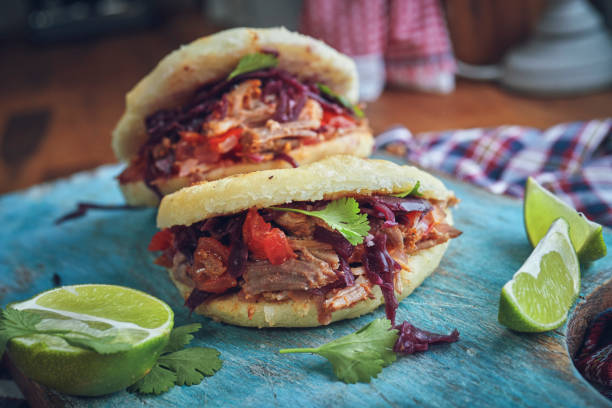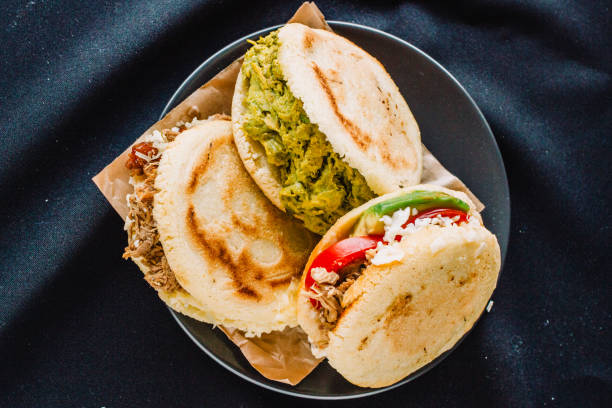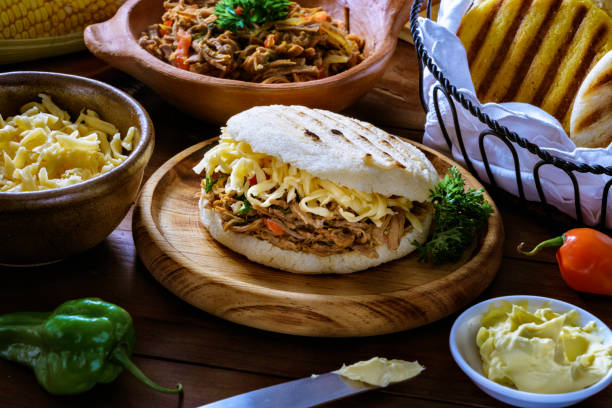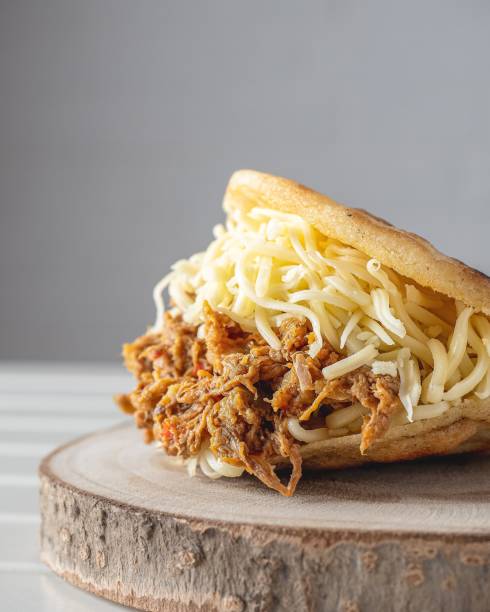Arepas, a beloved staple in Venezuelan and Colombian cuisine, are more than just a culinary delight; they are a symbol of cultural heritage and tradition. These versatile cornmeal cakes, enjoyed in various forms and fillings, offer a wealth of nutritional benefits. From providing essential macronutrients to being a source of vitamins and minerals, arepas are a nourishing and satisfying component of the diet.

The primary ingredient in arepas is cornmeal, which is rich in complex carbohydrates. Complex carbohydrates are essential for providing sustained energy, as they are broken down slowly by the body, helping to maintain stable blood sugar levels. This makes arepas an excellent option for a filling and energy-boosting meal, suitable for breakfast, lunch, or dinner.
Cornmeal, especially when made from whole grain corn, contains dietary fiber, which is crucial for digestive health. Fiber aids in maintaining regular bowel movements, preventing constipation, and promoting a healthy gut microbiome. Additionally, fiber helps in controlling blood sugar levels and can aid in weight management by promoting a feeling of fullness.

While arepas themselves contain some protein, particularly when made with enriched or fortified cornmeal, they are often filled with protein-rich ingredients that enhance their nutritional value. Common fillings include cheese, meats (such as chicken, beef, or pork), beans, and eggs. These additions make arepas a well-rounded meal that provides essential amino acids necessary for muscle repair, immune function, and overall bodily maintenance.

Cornmeal used in arepas is a good source of several important vitamins and minerals. These include:
– Vitamin B6: Important for brain health and the production of neurotransmitters. – Magnesium: Essential for muscle function, nerve function, and bone health. – Iron: Crucial for the formation of hemoglobin and oxygen transport in the blood. – Niacin (Vitamin B3): Vital for energy production and skin health.When arepas are filled with ingredients like vegetables, avocados, or meats, they become even more nutrient-dense, providing additional vitamins like vitamin C, vitamin A, and essential minerals such as potassium and zinc.

Arepas, typical food from Colombia and Venezuela, made with corn flour.
Traditional arepas are low in fat, especially when cooked on a griddle or baked instead of fried. The cornmeal itself contains minimal fat, making arepas a healthy choice for those monitoring their fat intake. The type and amount of fillings can alter the fat content, so choosing lean meats, low-fat cheeses, and vegetable fillings can keep the fat content low while still providing a delicious meal.**Gluten-Free:**Arepas are naturally gluten-free, making them an excellent option for individuals with celiac disease or gluten sensitivity. This makes them a versatile and inclusive dish that can be enjoyed by a wide range of people with different dietary needs.

One of the most appealing aspects of arepas is their versatility. They can be adapted to suit various dietary preferences and nutritional needs. Arepas can be filled with a variety of ingredients, from savory to sweet, allowing for endless culinary creativity. Whether filled with scrambled eggs and vegetables for a nutritious breakfast, black beans and cheese for a hearty lunch, or even fruits and honey for a sweet treat, arepas can be tailored to fit any meal of the day.
Beyond their nutritional benefits, arepas hold significant cultural and social importance. In Venezuela and Colombia, arepas are more than just food; they are a part of daily life and social gatherings. Sharing arepas with family and friends fosters a sense of community and tradition, making them a dish that nourishes both body and soul.

In conclusion, arepas are a nutritious and versatile component of Latin American cuisine. They provide essential complex carbohydrates, dietary fiber, and can be enriched with a variety of vitamins and minerals through diverse fillings. Low in fat and naturally gluten-free, arepas cater to a wide range of dietary needs while celebrating cultural heritage. By enjoying arepas, individuals can savor a delicious and wholesome meal that supports overall health and well-being while connecting with a rich culinary tradition.




